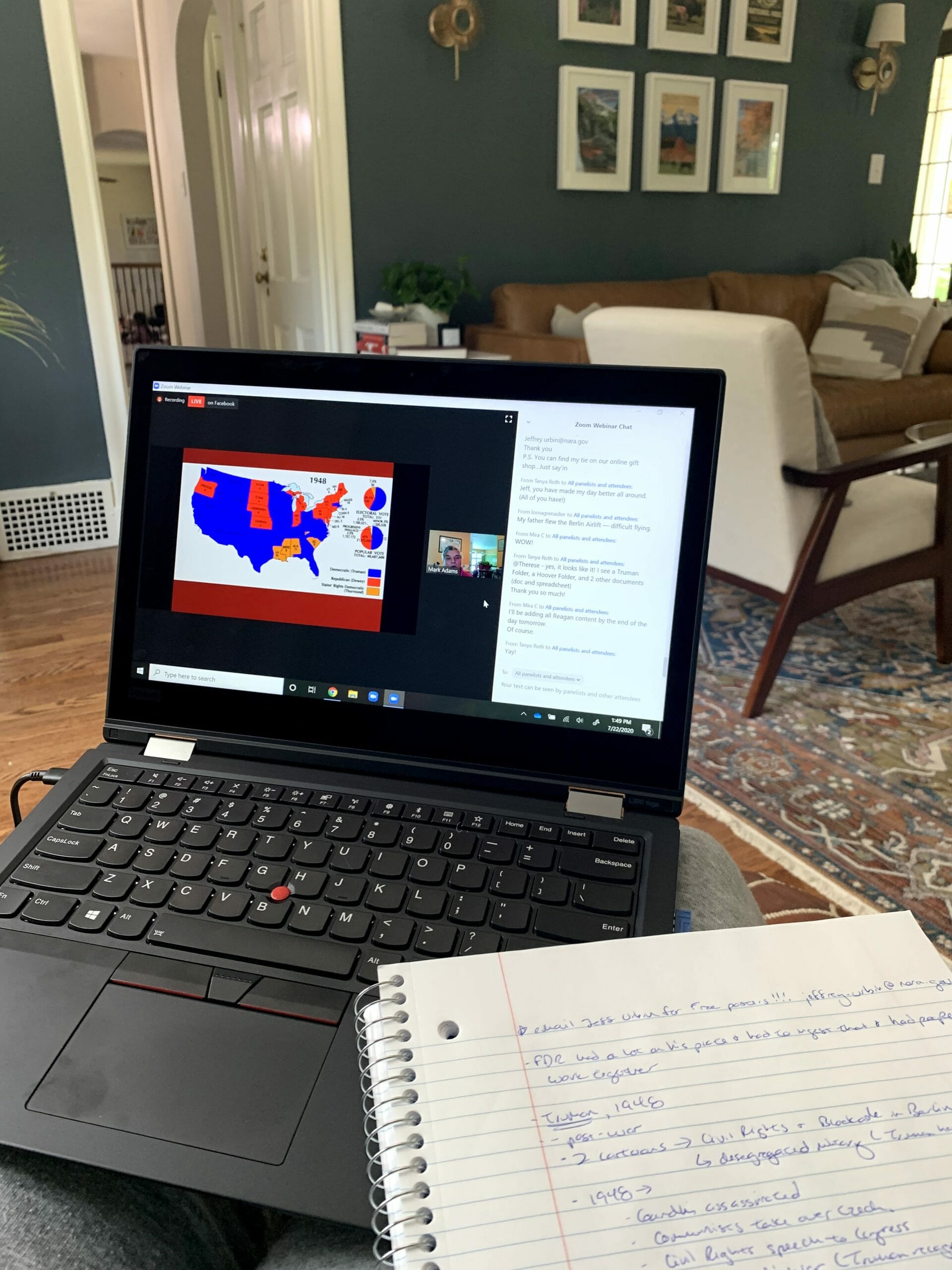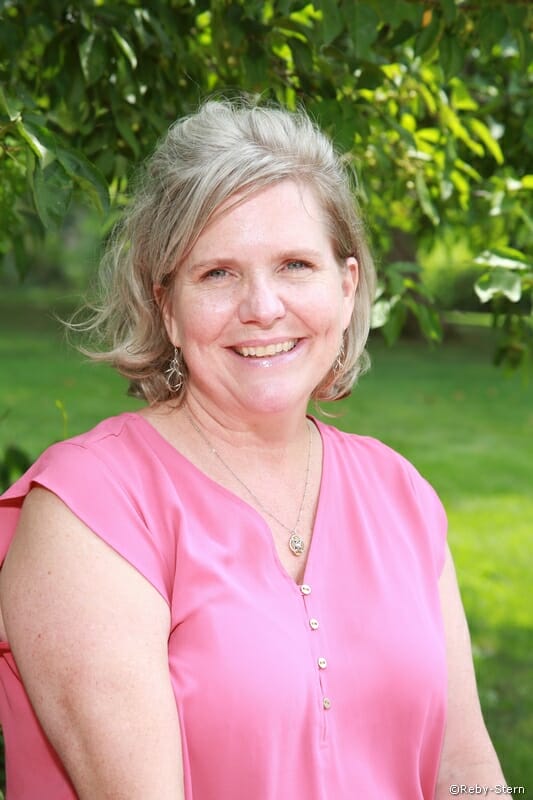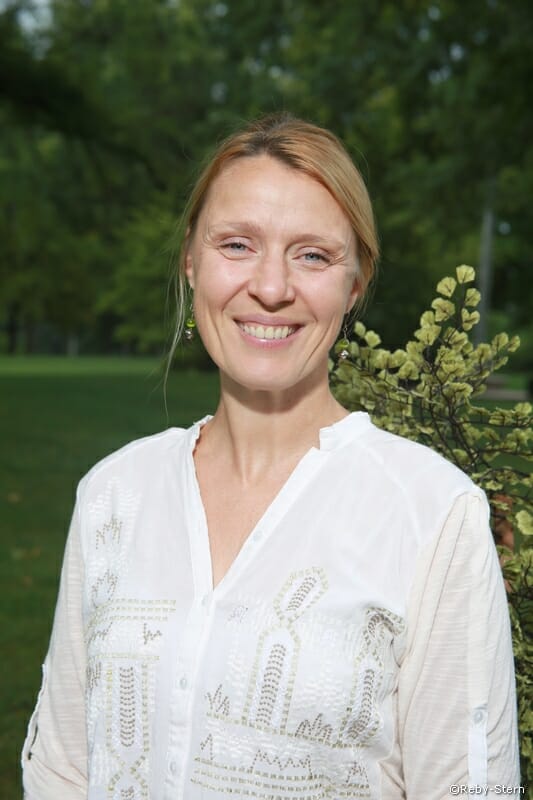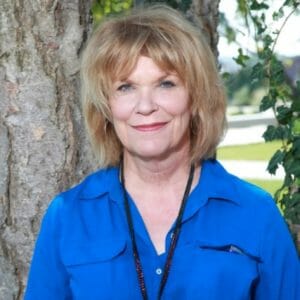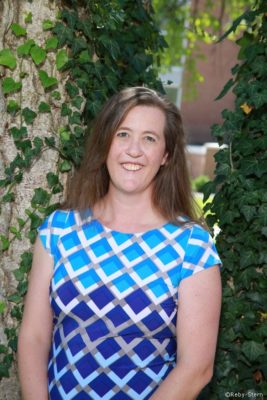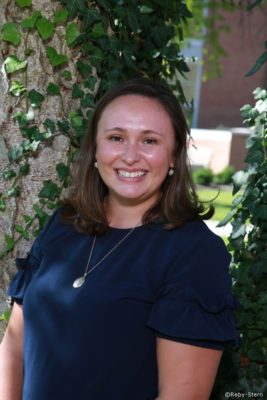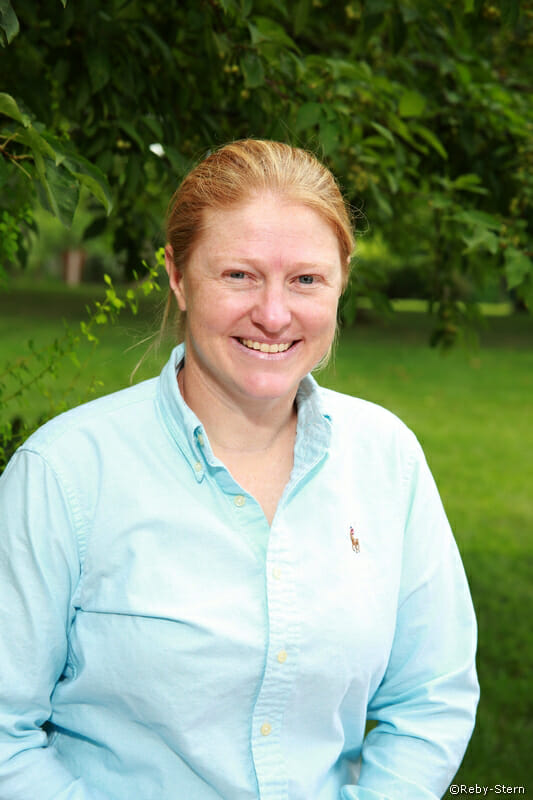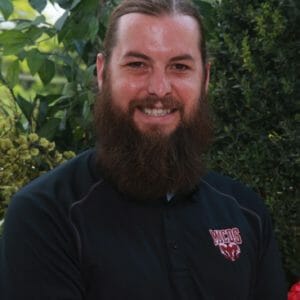MICDS faculty members turn to professional development pursuits during the summer months, and this summer, those pursuits were especially important and unique. Although there are no conferences or sabbatical trips to report due to COVID-19, faculty members engaged in bettering themselves as educators in the virtual environment. Even just the experience of being a virtual student in a webinar or online session was valuable in terms of building empathy for their students. Below find a sampling of reflections and reports from several faculty members (in alphabetical order by contributor) on their professional development engagements this summer.
 Middle School Language Arts Teacher Kathleen Armstrong attended Teaching Literacy in Times of Change and Uncertainty, a small conference produced by the Public Education and Business Coalition. Two sessions, in particular, stood out to her, especially within the context of distance teaching. Armstrong shared, “The first session was about choosing literature that activates, empowers, and transforms. All children need to be heard, and while this idea has been around awhile now, they need to see themselves in stories; they need to see others in stories that give them a window into how others live, and they need to be able to walk in another’s shoes so they can understand others who are not quite like themselves, here and around the globe. The metaphor that we need mirrors, windows, and doors in the books we choose is used to tap into our common bonds as humans and to develop a shared emotional response from the reading.”
Middle School Language Arts Teacher Kathleen Armstrong attended Teaching Literacy in Times of Change and Uncertainty, a small conference produced by the Public Education and Business Coalition. Two sessions, in particular, stood out to her, especially within the context of distance teaching. Armstrong shared, “The first session was about choosing literature that activates, empowers, and transforms. All children need to be heard, and while this idea has been around awhile now, they need to see themselves in stories; they need to see others in stories that give them a window into how others live, and they need to be able to walk in another’s shoes so they can understand others who are not quite like themselves, here and around the globe. The metaphor that we need mirrors, windows, and doors in the books we choose is used to tap into our common bonds as humans and to develop a shared emotional response from the reading.”
The presenter for the second session was Cuban-American author Antonio Sacre. He realized there were no stories that told his story, so he wrote some of those stories for his own children. His picture book stories are fun and engaging, and more importantly, they serve as a window into another culture for some children and a mirror for those who share similar culture and traditions. Armstrong said, “He is first and foremost a great storyteller! I could have listened to him all evening. He told short, one-minute stories that begin with a small moment in time. Story is one way of sharing who you are with your students—who you were with, maybe an expectation that wasn’t met, where you were. These stories are a small window that students can get to know us, and we can get to know them. Now that we aren’t with our students face to face, we have to figure out ways to build relationships with them. Telling our stories in short little snippets is one way to start to build those relationships virtually. I’ve already used some of Sacre’s ideas and incorporated them into my first week’s classes. I will continue to develop my own ideas that help students see who they are becoming and how all those seemingly insignificant moments help them grow into the person they are today.”
Middle School Drama Teacher and 7th Grade Dean Charlotte Dougherty shared her thoughts on a week-long professional development experience, Broadway Teacher’s Workshop 2020 Online Conference. Middle and Lower School Drama Teacher Missy Heinemann and Upper School Drama Teacher Carolyn Hood both participated in this workshop, too. The diverse curriculum included classes on design, teaching, producing, and directing theater in the online environment. Over 700 participants learned online from all over the world. Each evening closed with a fireside chat from a Broadway legend: Steven Schwartz, Patti LuPone, Billy Porter, and Chita Rivera.
Dougherty shared, “It was an amazing experience. I learned not only some tips for teaching online but also how it feels to be a student online all day. I think that was the biggest eye-opener. My favorite workshop was with Jeffrey Seller, Producer of Rent, Avenue Q, In the Heights and Hamilton. He talked about his school experience and how he started in theater. They were having auditions for a play and he thought he would like to try out. So he asked his dad, who was more of a sports enthusiast. His father looked at him and said, ‘Get in the car.’ It was a life-changing moment for him. When it comes to mentoring aspiring writers and composers, his job is to say ‘Get in the car.’ That really resonated with me. What a gift to give a child or anyone, nonjudgmental support.”
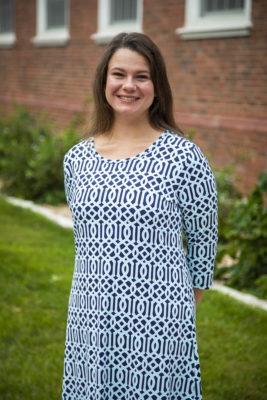
Middle School English Teacher Olivia Halverson participated in a distance learning-focused webinar entitled, Distance Learning up Close: Teaching for Engagement and Impact in any Setting (2020), presented by Douglas Fisher, Nancy Frey, and John Hattie. The webinar spoke to many aspects of distance learning including addressing students’ social/emotional needs, focusing on the learning process, cultivating student-teacher relationships virtually, employing technological platforms in the classroom, and assessing students at a distance. The overarching message was that distance learning is no longer a sprint at the end of the school year, but rather a new normal in which teachers and school communities must embrace wholeheartedly, and that students can benefit from learning away from school.
Halverson said, “As I embark on the distance learning journey with MICDS 7th graders, I am confident my strategies will provide students with a richer, more well-rounded distance learning experience. By reaching students’ needs emotionally, socially, cognitively, and academically through regular interactions with them and my willingness to pivot when a new approach is necessary, students receive quality educational instruction. The 2020-2021 school year will certainly help students grow in their adaptability and creative thinking, as the ever-changing environment requires nimbleness.”
Classroom Supervisor and Substitute Teacher David Kates completed the nine-day Climate Reality Leadership Corps Global Training led by Former Vice President Al Gore. The virtual training featured about 10,000 participants from dozens of countries. Gore delivered his two-hour “An Inconvenient Truth” speech, along with a “Reality in 10 (minutes)” speech, and he interviewed climate experts. Kates shared, “The goals of the training were to prepare leaders to deliver speeches in many different venues, integrate climate change into curricula, mentor youth activists, and participate in lobbying government and businesses to be more climate-friendly in their policies. At MICDS, I hope to deliver short and longer climate speeches to students in each grade and mentor the environmental or campus greening clubs.”
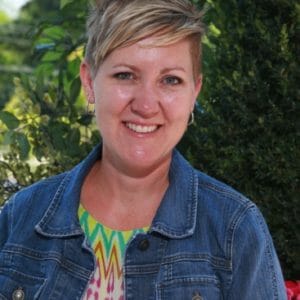 Middle School Math Teacher Dr. Jody Marberry attended a three-day training to earn her Qualified Administrator certification to help MICDS administer the Intercultural Development Inventory (IDI). With leadership from Director of Faculty Equity and Inclusion Erica Moore, MICDS began using the IDI a few years ago to help us build our understanding and authentic implementation of cultural competence. Marberry will help Moore this year re-introduce and administer the IDI to all faculty and staff to measure both our growth as individuals and also as a community.
Middle School Math Teacher Dr. Jody Marberry attended a three-day training to earn her Qualified Administrator certification to help MICDS administer the Intercultural Development Inventory (IDI). With leadership from Director of Faculty Equity and Inclusion Erica Moore, MICDS began using the IDI a few years ago to help us build our understanding and authentic implementation of cultural competence. Marberry will help Moore this year re-introduce and administer the IDI to all faculty and staff to measure both our growth as individuals and also as a community.
Upper School History Teachers Dr. Tanya Roth and Kristin Roberts engaged in an online course called What Makes a Winning Presidential Campaign? hosted through a partnership between the Presidential Primary Sources project, the National Archives, and Presidential Libraries. Over three days, the 90-minute Zoom sessions included presentations from staff at five presidential libraries (Herbert Hoover, Franklin Roosevelt, Harry Truman, Ronald Reagan, and Bill Clinton libraries). “We learned about how each of these presidents ran their political campaigns, focusing on five factors that determine if a presidential campaign is successful: strategy, technology, personality, state of the Union, financial support, and voter turnout. Because these presidential libraries are located across the country, from New York to California, it was a rare opportunity to hear from experts at all five locations simultaneously.” Roberts will be able to apply much of what she learned to her Presidential Politics class this semester, a course that focuses on the history of the presidency, particularly in terms of campaign strategies and changes over time. Roth teaches Accelerated U.S. History, and she also plans to incorporate resources from the program later in the school year.
Roth shared, “As U.S. History teachers, these presentations offered us a wealth of knowledge and insight into these specific presidencies and the evolution of presidential campaigns over the last century. We really enjoyed the historical details that were shared as well as the many primary source photographs, texts, and videos that we can use with our classes. In addition to becoming more informed about presidential campaigns and these specific presidents, each day we got to participate in small activities that we can use in the classroom, including new strategies for analyzing primary sources. We also got to witness a variety of presentation methods that allowed us to experience a Zoom class as a student so that we can better present information to our own students virtually this fall.”
 Middle School Learning Specialist Susan Taylor-Alonso participated in a summer graduate course through her Multicultural Education doctoral program at Johns Hopkins University. The course focused on identifying strategies and interventions for facilitating transformative multicultural approaches to education. Taylor-Alonso said, “Using Pedersen’s tripartite model of multiculturalism, we addressed the requisite awareness, knowledge, and skills for enhancing our multicultural competencies. We created a conceptual framework to organize research approaches related to this model, and we engaged in deep reflection about critical pedagogy, intersectionality, and fostering identity safe spaces. Participating in this course was salient and transformational as we grappled with many of the issues related to the growing activism around social justice and equality in our nation. It helped me to gain a clearer perspective of my own identity as a bilingual/bicultural Mexican-American, and I hope to incorporate this knowledge in my own work so that all of our students feel seen and included at our school.”
Middle School Learning Specialist Susan Taylor-Alonso participated in a summer graduate course through her Multicultural Education doctoral program at Johns Hopkins University. The course focused on identifying strategies and interventions for facilitating transformative multicultural approaches to education. Taylor-Alonso said, “Using Pedersen’s tripartite model of multiculturalism, we addressed the requisite awareness, knowledge, and skills for enhancing our multicultural competencies. We created a conceptual framework to organize research approaches related to this model, and we engaged in deep reflection about critical pedagogy, intersectionality, and fostering identity safe spaces. Participating in this course was salient and transformational as we grappled with many of the issues related to the growing activism around social justice and equality in our nation. It helped me to gain a clearer perspective of my own identity as a bilingual/bicultural Mexican-American, and I hope to incorporate this knowledge in my own work so that all of our students feel seen and included at our school.”
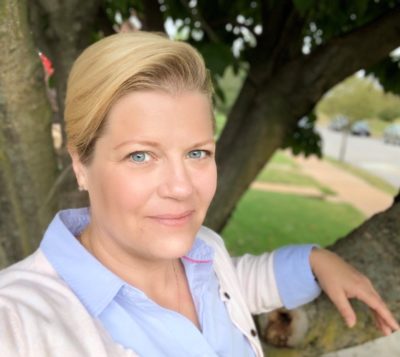 Upper School Dean and English Teacher Nicole Trueman-Shaw participated in Rick Wormeli’s webinar entitled Accurate/Ethical Grading hosted by the Independent Schools Association of the Central States (ISACS). She shared, “We focused on best practices for grading the acquisition and application of skills during COVID-19. We need to be intentional about showing grace and compassion before accountability when it comes to supporting our newest Upper School friends. While we need to ultimately hold them accountable for their work and learning, we first need to make sure we are being appropriately compassionate about their learning challenges in this new virtual learning environment.”
Upper School Dean and English Teacher Nicole Trueman-Shaw participated in Rick Wormeli’s webinar entitled Accurate/Ethical Grading hosted by the Independent Schools Association of the Central States (ISACS). She shared, “We focused on best practices for grading the acquisition and application of skills during COVID-19. We need to be intentional about showing grace and compassion before accountability when it comes to supporting our newest Upper School friends. While we need to ultimately hold them accountable for their work and learning, we first need to make sure we are being appropriately compassionate about their learning challenges in this new virtual learning environment.”Middle School History Teacher Robyn Williams and Middle School Science Teacher/Maker and Robotics Coordinator Branson Lawrence took a course called Andragogy and Distance Learning through Lindenwood University as part of their Master’s in Educational Technology program. The course provided a foundation in major theories of adult learning (androgogy), digital etiquette, responsible social interaction, and online education. The course project was to design and develop an online course for adult learners.
Williams created a self-paced, self-directed Schoology course for MICDS teachers. She said, “While the course was geared towards adult learners, I found the major project helpful in designing and thinking about how to organize information on a learning management system for younger students engaged in distance learning. The project helped get my mind ready to create my Canvas courses for my younger students so that they can see the information in an organized and understandable way. I want my students to be able to work effectively and efficiently in the virtual learning environment.”
Lawrence created a Schoology course on instructional videos for tools and equipment in the maker space. The videos focused on safety, operation, and potential classroom use. The course intent was to enable a teacher to integrate more maker projects into their curriculum.
